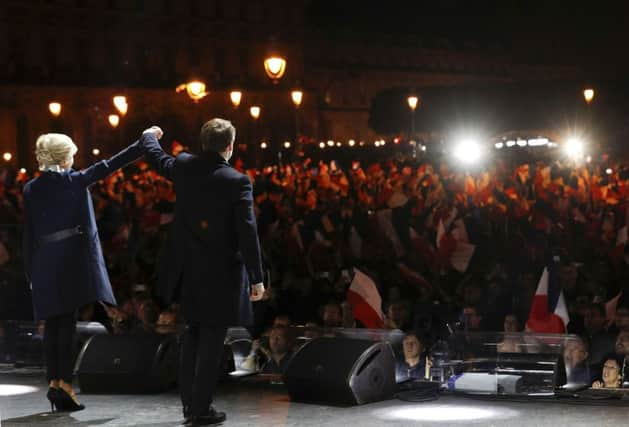Mood of negotiations could change


After the potential upheaval that would have come from a politician of the extreme right securing the French presidency, Emmanuel Macron has acted as a driver to stabilise the EU. At the start of the year there was the prospect of Dutch and French right wing politicians being elected and of Angela Merkel losing the autumn election in Germany. Two of those are off the agenda, and Merkel is on course to secure a fourth term.
It is tempting to say that with the UK on course to leave the EU this is less important. However these events could change the mood of the negotiations on Brexit. The Franco/German axis, which has always driven the EU, is now stronger than ever. Indeed if the UK has remained a member of the EU it would increasingly have been squeezed, despite being on an economic par with these two countries. However it is ultimately strong, secure politicians that can deliver deals – and by the autumn, barring a cataclysmic political shock, Theresa May, Angela Merkel and Emmanuel Macron will all be in a strong position to negotiate.
Advertisement
Advertisement
Central to such a deal will be a recognition that the EU-27 will be the loser if the UK is forced into a hard Brexit. This would be one where the UK leaves with no trade deal in place, meaning trade would be on the basis of World Trade Organisation tariffs. That would rule out most agricultural products, as the tariffs would be uneconomic. Such an outcome would cause serious cross border problems here. The real driver however for the EU-27 is that they export a lot more to the UK than it sells to them. Look around any car park or the shelves in any supermarket and that is clear. No deal would be a particular problem for the Republic of Ireland, which is treated the same as UK suppliers by the major supermarkets, which are the biggest outlet for Irish food.
These economics are forgotten by some politicians, who believe the UK must be punished for Brexit. However the main German farm union, DBV, and the umbrella body in Europe for farm unions and cooperatives, Copa-Cogeca, both recognise the threat from a hard Brexit. Copa says this would be a ‘catastrophic outcome’ for European farming, because of the reliance of the EU-27 on exporting food to the UK. The German farm union puts figures on this, claiming the trade flow is 4.7 billion euro a year in favour of the EU-27. That is not a market to walk away from and the countries that would suffer know this. These include France, Germany, Spain, Netherlands and potentially worst hit of all, Ireland. If politicians push the UK into a hard Brexit, many will face a tough time explaining to their farmers and food industry why punishing the UK was more important than securing a future for their businesses.
The exception to this is some of the more radical farm groups in France. While the main farm union, FNSEA, recognises that a trade deal with the UK makes sense radical groups representing livestock farmers in particular want policies that will drive the UK into a hard Brexit. They believe this would keep British farm produce out of France.
This raises an issue where the UK farming industry may have different views towards the EU-27 and the rest of the world. This is about equivalence. We will want standards equivalent to those of the UK imposed on countries like Brazil or Thailand that want to access the UK food market with beef, pork or poultry. At the same time, having escaped from the CAP, the last thing farmers will want is an EU-27 demand for equivalence. This would mean meeting in full the standards and rules of the CAP for products exported to Europe. This will be contentious, and the French already have a track record for attacking British products, even when we are in the EU. That can only get worse after Brexit, regardless of the deal negotiated, because a big difference between then and now will be that the UK will no longer have the right to demand through the European Court that trade rules are met by the EU-27.